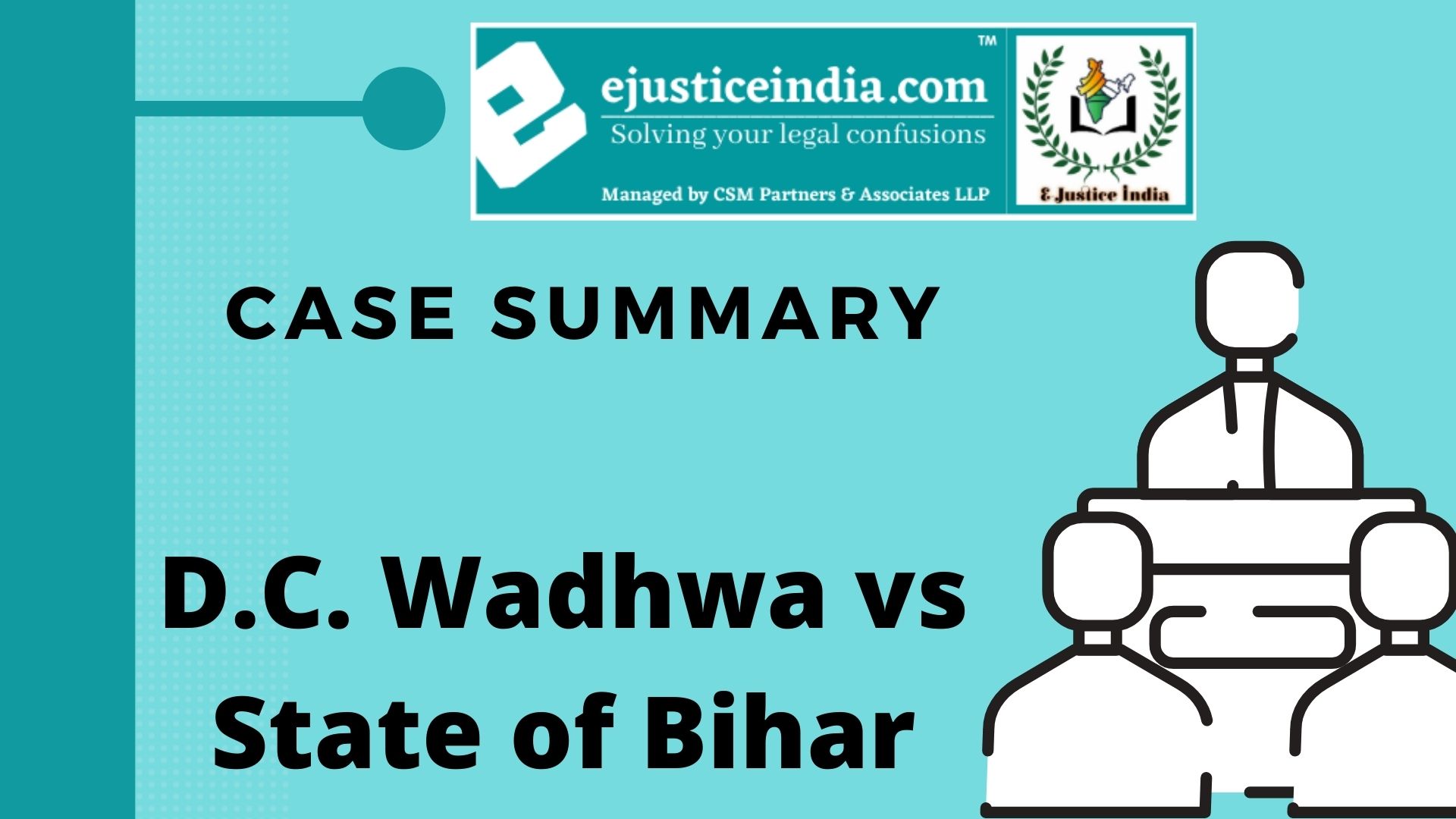Case Summary : A. ABDUL GAFOOR KUNJU VS. AU PATHUMA BEEVI
Author : Rutambhara Nayak
Citation: 1989 CriLJ 1224
Bench: C S Nair
Introduction:
The decision is of prime importance because it laid down that the Muslim Women (Protection of Rights on Divorce) Act, 1986 (hereinafter known as Act) came into effect to being the primary statute to determine the rights of a muslim woman who claims maintenance after divorce from her husband. To make such a decision, the court went back to understand the object behind the passing of the Act. It was emphasized in the decision that the court is supposed to respect the policy of legislative wisdom and limit its power to provide people with the interpretation of it. The rights arising out of the above mentioned Act are not aiding to those given under the Criminal Procedure Code (CrPC), it is not meant to substantiate the rights but primarily determine it. Hence, the aggrieved muslim woman may not invoke provision under CrPC after the commencement of this Act.
Facts:
A muslim woman and her daughter were granted a raise in the maintenance amount. The maintenance was decided on the provision of 125 of CrPC but they requested for a raise after the Act came into force and this enhancement in the maintenance amount of wife was challenged before the court of law. With respect to daughter receiving an increased maintenance was not challenged under these circumstances.
Issues and Fact of Law:
- To determine whether the order by the Court of Sessions, Trivandrum enhancing the maintenance awarded to a muslim woman and her daughter is impugned after the commencement of the Act.
- Whether the Act could supplement the maintenance awarded prior to its commencement under section 127 of the CrPC?
- Whether the sections 125 to 128 of CrPC are applicable after the commencement of the Act?
Judgement:
Order of the court set aside the previous order that had enhanced the maintenance order for the muslim woman stating that S. 127 of CrPC is not available under the given facts of the case.
The judgment struck down the notion that the provisions of te Act are merely supplementary to the already existing provisions of CrPC as sections 125 to 128 were not repealed after the commencement of the Act. The cases that the Court of Sessions relied on to give its decision was also termed to ave no relevance as to the question arising here. Further explaining it, the court laid down that the scope of operation of sections 125-128 of CrPC is not limited to muslims, hence there is no provision of repeal. Moreover, the respondents’ argument with respect to additional/supplementary nature of the rights in the Act to save the no vagrancy principle was negated by the court by referring to the fact that the Act came into existence in the first place because the provisions in the CrPC were considered to be in conflict with the Muslim Personal Law, so the Act was made to specify the rights of a muslim woman in such a circumstance. (Consequential to Shah Bano’s Case)
The judgment was thus based on two basic notions:
- Application of sections 5&7 of the Act.
- A special law prevails over the general law. (Rule of Interpretation)
Except in the case where both the parties agree to be governed by the provisions of CrPC, every other case is to be governed by the Act. Hence, it is intended to restrict the operation of the CrPC and not supplement it.


